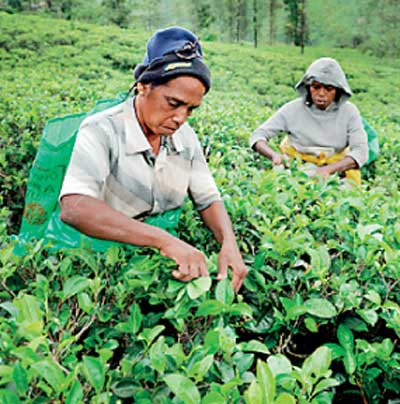Sunday Feb 22, 2026
Sunday Feb 22, 2026
Tuesday, 19 January 2016 00:10 - - {{hitsCtrl.values.hits}}
Oxford Business Group prepares to launch first-time country report
Better marketing and branding of Sri Lankan teas overseas, together with the potential for liberalising the industry, were just some of the issues discussed with Rohan Pethiyagoda, the newly-inducted Chairman of the Sri Lankan Tea Board, in an interview given to global research, publishing, and consultancy firm, Oxford Business Group (OBG).
Tea export volumes out of Sri Lanka showed a distinct decline in the year to November 2015 in comparison to the previous year, while global prices remained low.
Pethiyagoda believes the price component is at least in part owing to there being insufficient brand value attached to Ceylon Tea,  whether in terms of retail branding by individual companies or generic branding through “Ceylon Tea”.
whether in terms of retail branding by individual companies or generic branding through “Ceylon Tea”.
“Sri Lanka needs to think more in finding itself a niche or multiple niches in the global beverage market, rather than just looking at manufacturing bulk tea and selling it to the highest bidder,” he said. “This is a crude way of doing it, maintaining the status quo, and we have done it for a century and a half. Our marketing efforts need to ensure that Ceylon Tea continues to communicate superior quality, as does Swiss Chocolate, French Wine, or Colombian Coffee.”
The full interview with Pethiyagoda will appear in The Report: Sri Lanka 2016, OBG’s first report on the country’s economy detailing a sector-by-sector analysis for investors. Pethiyagoda’s comments will appear alongside contributions from leading industry representatives, including Merril Fernando, founder of Dilmah Tea and Mohan Pandithage, Chairman and CEO of Hayleys.
Delicate issues around tea import liberalisation were also discussed in the interview. Many tea exporters have long called for multi-origin blending in Sri Lanka to help mitigate costs, while tea purists say this taints the Ceylon brand and could potentially displace a large portion of Sri Lanka’s rural population that depends on the industry.
Pethiyagoda told Oxford Business Group that while he would like to see markets as free as possible, he understands both sides.
“The worst thing we can do is try and become protectionist and think only in terms of the interests of one group. However, you have to balance that with the fact that there are hundreds of thousands of people whose livelihoods depend on this, and these are not rich people. You have to be socially conscious not to damage too many people as a result of allowing market forces to proliferate.”
Given the implications of the new budget, Pethiyagoda expects efforts to liberalise the industry to occur in a piecemeal fashion.
“We can control it and learn and if things go well open up the system a little more. Everyone from regional plantation companies to buyers have their own interests to protect. The job of the Tea Board is to protect them all.”
The Report: Sri Lanka 2016 will be a vital guide to the many facets of the country, including its macroeconomics, infrastructure, banking, agriculture and other sectoral developments.